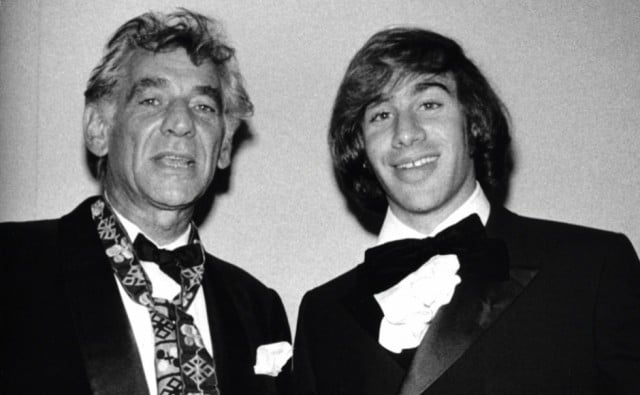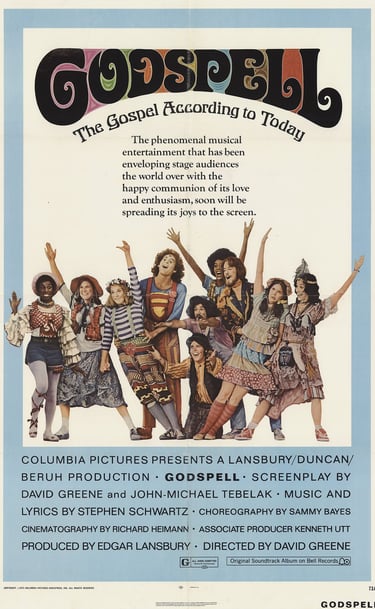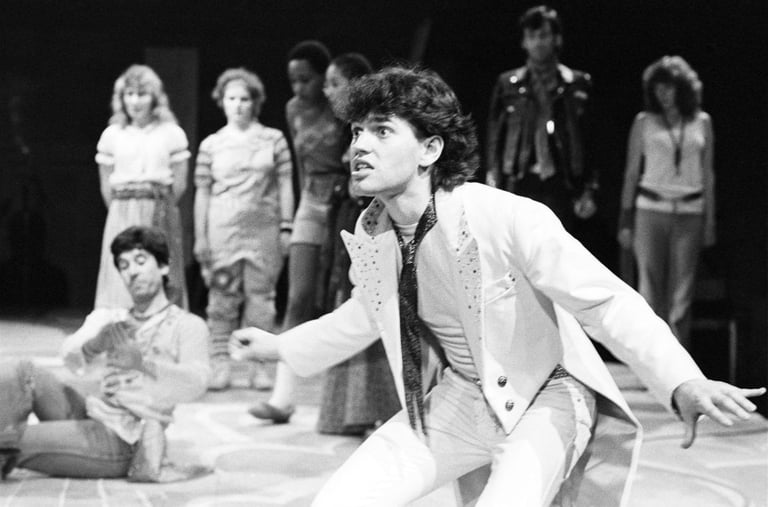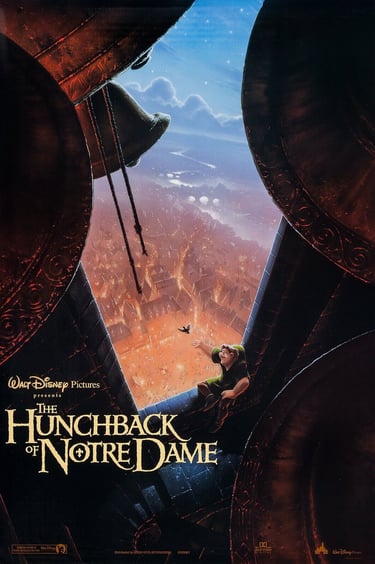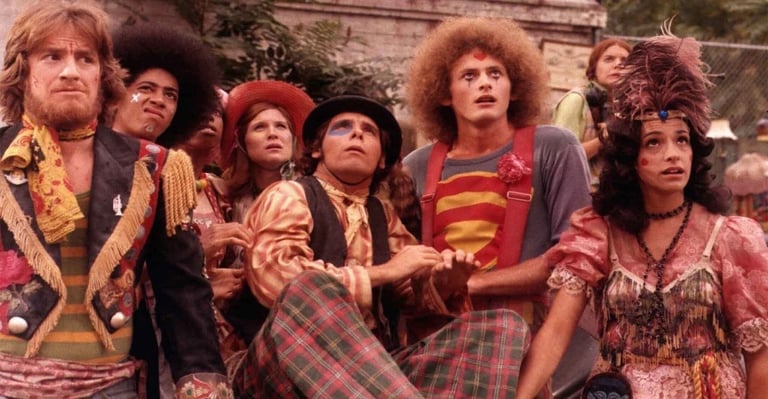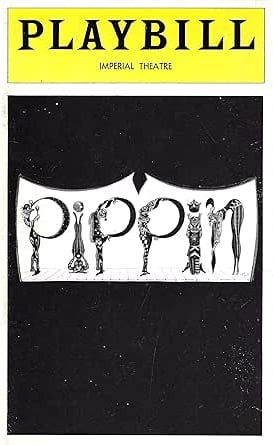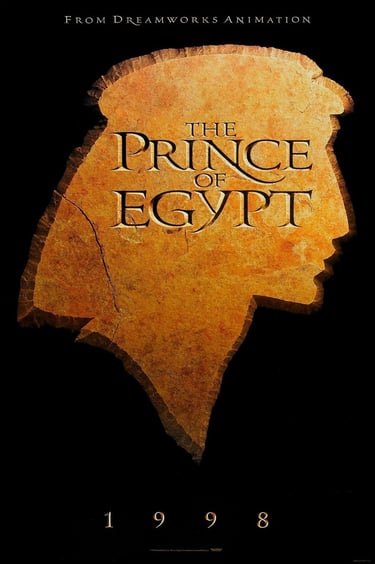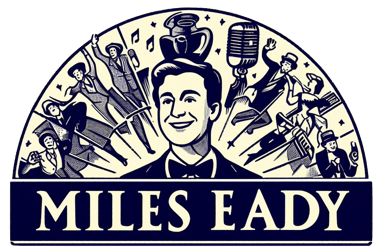From Oz to Wicked Part One: Defying Gravity - The Musical Mind of Stephen Schwartz
Musical history and context


Wicked brings to mind Elphaba’s soaring vocals or the spectacle of flying witches, but who was the mind behind it? Stephen Schwartz is the show's composer-lyricist whose career spans nearly six decades. He has not only shaped Broadway’s modern sound but also left his mark on Hollywood animation, theatrical innovation, and the art of telling stories through song.
College and the Birth of a Composer-Lyricist
Schwartz pursued a BFA in drama from 1964 to 1968. Choosing drama over music was a deliberate decision: “Everybody writing for theatre should take acting, because the processes are so similar,” he once explained. Yet, as a student, he quickly discovered a rare dual talent: he was not content simply to write lyrics or compose music; he wanted to do both. Unable to find collaborators who shared his standards, Schwartz became a composer-lyricist, a distinction that would define his career.
His early student work, a musical titled Pippin, Pippin, formed the nucleus of what would become the Broadway hit Pippin. Even at this stage, Schwartz demonstrated the hallmarks of his style: melodic inventiveness, emotional truth and a willingness to blend playful humor with deeper philosophical ideas.
Early Life: A Worldly Start
Stephen Lawrence Schwartz was born on March 6, 1948, in New York City. He picked up two laungauges when, at a young age, his family moved to France for a year. When back in the USA, Schwartz’s solitary play saw his fascination with performance and music grow stronger. His favorite toy was a phonograph playing 78 rpm records, though which he developed an appreciation for opera — particularly the aria “The High Lady” from Boris Godunov.
At age nine, Schwartz experienced a theatrical epiphany: he saw the Broadway musical Shinbone Alley on April 13, 1957, and left the theatre convinced that he, too, would one day write for the stage. Schwartz has spoken about feeling like an outsider during his high school years. He described himself as “chameleonlike,” adopting protective colors to fit in and cultivating an internal sense of “fraudulence.” These feelings of alienation would later infuse his works, making characters like Elphaba and the Hunchback universally resonant for anyone who has ever felt out of place.
Breakthrough Musicals: Godspell and Pippin
Schwartz’s first major Broadway triumph came with Godspell (1971), an off-Broadway hit for which he provided music and new lyrics. The show, a contemporary take on biblical parables, won him a Grammy Award for Best Musical Show Album in 1972. Notably, Schwartz drew inspiration from the pop singer-songwriter Laura Nyro when composing “Bless the Lord” and paid homage to Irving Berlin in the counterpoint melodies of “All For the Best.” Godspell also demonstrated Schwartz’s commitment to social change: when licensing the show for South Africa in 1974, he insisted that it maintain a racially integrated cast and audience, breaking the colour barrier for musical theatre in that country.
Just a year later, Schwartz faced his most famous—and fraught—collaboration: Pippin (1972), directed and choreographed by Bob Fosse. The show began life as Schwartz’s college project but, under Fosse’s hands, became a spectacle of vaudeville-infused choreography. The clash was immediate: Schwartz felt Fosse had “perverted” his vision, emphasising “bumps and grinds and cheap jokes” over the thematic depth he intended. One rehearsal anecdote captures the tension perfectly: Schwartz, in a rare show of boldness, rose from his chair to demonstrate the kind of dancing he expected. Despite the conflicts, Pippin was a commercial hit and remains a defining example of Broadway’s collaborative—and sometimes combative—artistry. In time Schwartz came to appreciate Fosse's contributions as part of the show’s licensed legacy, becoming the “protector of Fosse’s vision.”
Other early works, like The Magic Show (1974) and The Baker’s Wife (1976), showcased Schwartz’s eclectic approach to storytelling. The Magic Show, starring Doug Henning, ran for five years, while The Baker’s Wife, despite initial struggles, featured the enduring song “Meadowlark.” Schwartz’s career also included projects like Working (1978) and Children of Eden (1991), highlighting his willingness to explore complex themes, from everyday labor to biblical narratives, often blending pop and rock influences with theatrical storytelling.
Film Musicals and Emotional Truth
Schwartz’s influence extended beyond Broadway to Hollywood animation, where he brought the same emotional candor that characterized his stage work. Collaborating with Alan Menken, he wrote the lyrics for Pocahontas (1995) and The Hunchback of Notre Dame (1996), earning Academy Awards for the former. Schwartz has described the villain Claude Frollo as his favorite character to write, relishing the opportunity to explore darker emotional territory. For DreamWorks’ The Prince of Egypt (1998), he wrote both music and lyrics, including the anthem “When You Believe,” a song that highlights his philosophy: the more a song is grounded in personal emotional truth, even when disguised as a character, the more it resonates universally.
Mentorship, Musical Philosophy and Broadway Lineage
Beyond his compositions, Schwartz is a pivotal figure in shaping musical theatre’s future. Leonard Bernstein was a crucial early influence and Schwartz even contributed lyrics to Bernstein’s Mass (1971) under the guidance of Bernstein’s sister, his long-time agent Shirley Bernstein. Stephen Sondheim praised him for “doing more to nurture and stimulate new talent in the field of musical theatre than anybody in recent memory,” a nod to Schwartz’s work with the ASCAP Foundation/Disney Musical Theatre Workshops.
Schwartz’s innovations include blending pop and rock into theatrical scores with sensitivity and melodic grace, developing leitmotifs to create thematic richness akin to opera, and maintaining a keen sense of social and philosophical relevance. His work often reflects a dual commitment to entertainment and introspection, a balance that makes his shows both enjoyable and intellectually engaging.
The Lessons Behind the Magic
What makes Stephen Schwartz fascinating is the way his personal journey—alienation, ambition and meticulous vision—intersects with Broadway’s evolution. He has managed to create musicals that are immediately accessible yet deeply layered, from Godspell’s quirky parables to Pippin’s philosophical explorations and Wicked’s sprawling mythos. He navigates the tension between spectacle and substance with ease, whether contending with the authoritative Bob Fosse or competing with Hollywood studios. In every medium, Schwartz insists that emotional truth guides his art, resulting in songs that are unforgettable not merely for their melodies, but for their resonance with human experience.
Why Understanding Schwartz Matters
Schwartz’s career illuminates decades of musical theatre innovation: a lineage stretching from Loesser and Bernstein through Fosse and onward to the pop-infused Broadway of today. Every soaring note of Elphaba, every clever lyric, is embedded in decades of experimentation, emotional honesty and a fierce commitment to both craft and principle.
Thirty years before Wicked, Schwartz was already laying the groundwork for “Defying Gravity.” Wicked's score is born from accumulated wisdom, the struggles and the triumphs of a composer who has spent a lifetime reshaping how theatre sings.
Watch
Before you watch: these videos are official releases and still live at time of posting.
Wicked composer Stephen Schwartz breaks down ‘Defying Gravity’
Watch Schwartz unpack the musical architecture and hidden Easter-egg of the show-stopping number “Defying Gravity” — a rare look into his songwriting mind.
Further Reading
Defying Gravity: The Creative Career of Stephen Schwartz, from Godspell to Wicked by Carol de Giere
The essential biography tracing Schwartz’s evolution from his early musicals to the creative vision behind Wicked.
Buy it here
All His Jazz: The Life of Bob Fosse by Martin Gottfried
A vivid portrait of the choreographer-director behind Pippin, revealing how his daring theatricality influenced Schwartz’s sense of showmanship and staging.
Buy it here
Leonard Bernstein: A Life by Meryle Secrest
Explores Bernstein’s mentorship of Schwartz and their shared belief in the social and emotional power of music, offering context for Wicked’s moral and melodic depth.
Buy it here
Explore the Series
[Start of the Series]
→ Part 2: Wicked on Stage and Screen
Interview With ‘Wicked’ Creators Stephen Schwartz & Winnie Holzman
Schwartz and Holzman discuss how the Broadway musical became a film adaptation, revealing the creative shifts and long-term vision behind the project.


